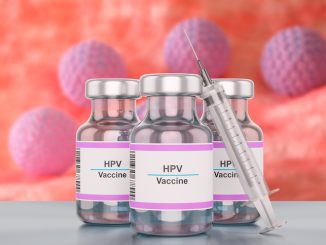
As reported by NHS England, in a historic move, the NHS commits to eradicating cervical cancer by 2040, aiming to save thousands of lives each year in England
Speaking at NHS Providers’ annual conference, NHS chief executive Amanda Pritchard outlined how the health service can achieve the goal for elimination by making it as easy as possible for people to get the lifesaving Human Papillomavirus (HPV) vaccination and increasing cervical screening uptake.
England is among the first countries in the world to set this elimination ambition within the next two decades.
As part of new plans to put the NHS one step closer to eliminating the HPV virus, which causes up to 99% of cervical cancers, health and care professionals will be supported to identify those who most need the vaccine, through targeted outreach and offering jabs in more convenient settings.
The NHS also sets out plans to improve access to online vaccination appointments nationally, with millions more people able to view their full vaccination record and book vaccines on the NHS App over the coming months and years.
The new measures also give local health teams more flexibility to locate vaccine services in convenient local places such as libraries, community centres and local leisure or sport facilities. Vaccinations will become part of a ‘one-stop shop’, with NHS staff set to expand the offer of blood pressure tests and other health checks and advice, alongside routine vaccinations.
The HPV vaccine prevents invasive strains of the virus, known to cause almost all cervical cancers, as well as some mouth and throat cancers. It is given to both girls and boys in secondary school to protect them against catching the HPV infection and developing into pre-cancerous and cancer cells.
To eliminate cervical cancer by 2040, the NHS needs to ensure as many people as possible are being vaccinated against HPV, while also coming forward for cervical screening.
NHS screening helps prevent cervical cancer by using a highly effective test to check for high-risk HPV which may cause abnormal cells to develop in the cervix. These abnormal cells can, over time, turn into cancer if left untreated.
Alongside its vaccination drive, the NHS is inviting more people than ever before for cervical screening – over five million people aged 25 to 64 were invited last year, with 3.5 million tested – while self-sampling will be trialled to determine if it could be introduced as part of national screening.
The World Health Organisation considers cervical cancer to be eliminated as a public health problem when there is an incidence rate lower than four per 100,000 women.
Amanda Pritchard, chief executive of the NHS in England: “It is truly momentous to be able to set out such an important, life-saving ambition today – to eliminate cervical cancer would be an incredible achievement and through a combination of our HPV vaccination programme, and our highly-effective cervical screening programme, it could become a reality in the next two decades.
“Vaccination and screening are the key tools which mean we are one step closer to achieving this and the NHS is already making it easier than ever before for people to protect themselves and their families – whether it’s through community outreach in areas of lower uptake or expanding the NHS app so that everyone has their vaccine history and booking options in the palm of their hand.
“As ever, the public can play their part by coming forward for their vaccines and screening appointments when invited – to achieve our goal of eliminating cervical cancer, we need as many people as possible to take up the offer, so please don’t delay – it could save your life.”
The NHS vaccination drive builds on the world-leading NHS Covid-19 vaccination programme, which allowed adults to book their own vaccine appointments online, and to get vaccinated in a range of non-NHS settings. As part of ongoing efforts to make it easier for people to ensure they are up to date with their vaccinations, the NHS is significantly expanding the NHS App with a new dedicated space where people can view their full vaccine record, and options to book appointments for any they are missing.
Parents will increasingly be able to see the vaccination status of their children on the App with support on how to book appointments.
Currently, most app users can view their COVID and flu vaccination status via the NHS App, but the NHS will be increasing the visibility of all 15 routine vaccine-preventable diseases, including HPV and MMR, making it easier for people to identify any missed vaccinations in their history.
Over 32.8 million people are already signed up to the NHS App, and through expanding its functions to include, booking invitation alerts, in-app bookings, and appointment notifications, the NHS aims to make it even easier for people to get vaccinated.



Be the first to comment